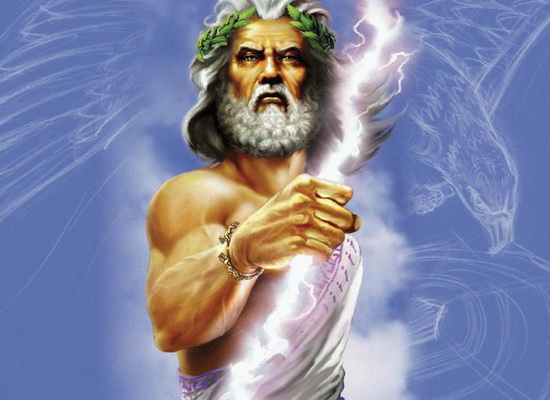DIAS
Dias is the greatest divinity of the Ancient Greek Pantheon. He was the god of the open sky and one of the most ancient gods, since his name is mentioned in historical references of other Indo- European peoples as well, such as Indians, Imbrians e.t.c.
In the Greek and the Latin culture (most probably because of the Greek influence) he took the place of the king of gods. In “Iliad” of Homer he is mentioned as the father of gods and of the Olympian people, where his palace is and from where-or from the sky-he governs the world. The kings of the earth are in a way his descendants and are under his protection, and that is why they are named as born by Dias. Later, when the time will come and the monarchy will be abolished, Dias will become the protector of the polity, whether the latter is ruled by the people or the aristocrats.
For as long as the laws are not written, it is Dias who protects the foreigner, the poor person, the runaway and the suppliant and that is why he is called “Xenios Dias”. Dias also supervises the oaths (thus called “Orkios Dias” in Greek) and woe was to whom would break them. Not only was he the god who would send the celestial light, but the god of the weather transitions as well. He was the one to send the winds, the clouds, the rain, the hail, the lightning and thunder to the earth either for the sake or for the harm of people.
Dias was frequently adored on the peaks of the mountains, because it was there where the first clouds would gather, and this was considered by the people as an indisputable sign that the rain would follow. Hera was his permanent and eternal spouse and their children were Ares, Hephaestus and Hebe who was married to Hercules. Dias enjoyed love with many goddesses, nymphs and mortal women.
His so considered weapon was the thunderbolt which made him unbeatable and not only people but gods as well were in dread of him. It was that with which he would crush the Titans, and threat the Olympian Gods if they would disobey to his orders. During the Archaic Period he is often shown holding the thunder in his hand.
We are taught by the theogony that Rhea gave birth to the last-born of Cronus. Rhea in order to save her children from the paternal sacrifice, in the middle of the night took shelter to Crete and with the help of her mother Gaia, the “divine infant” was brought to life. The cave that hosted the frightened “divine visitor” was –according to the first archaeologists-is the Psychro- Cave. Legend has it that newly-born Dias was nourished by the milk of goat Amalthea.

